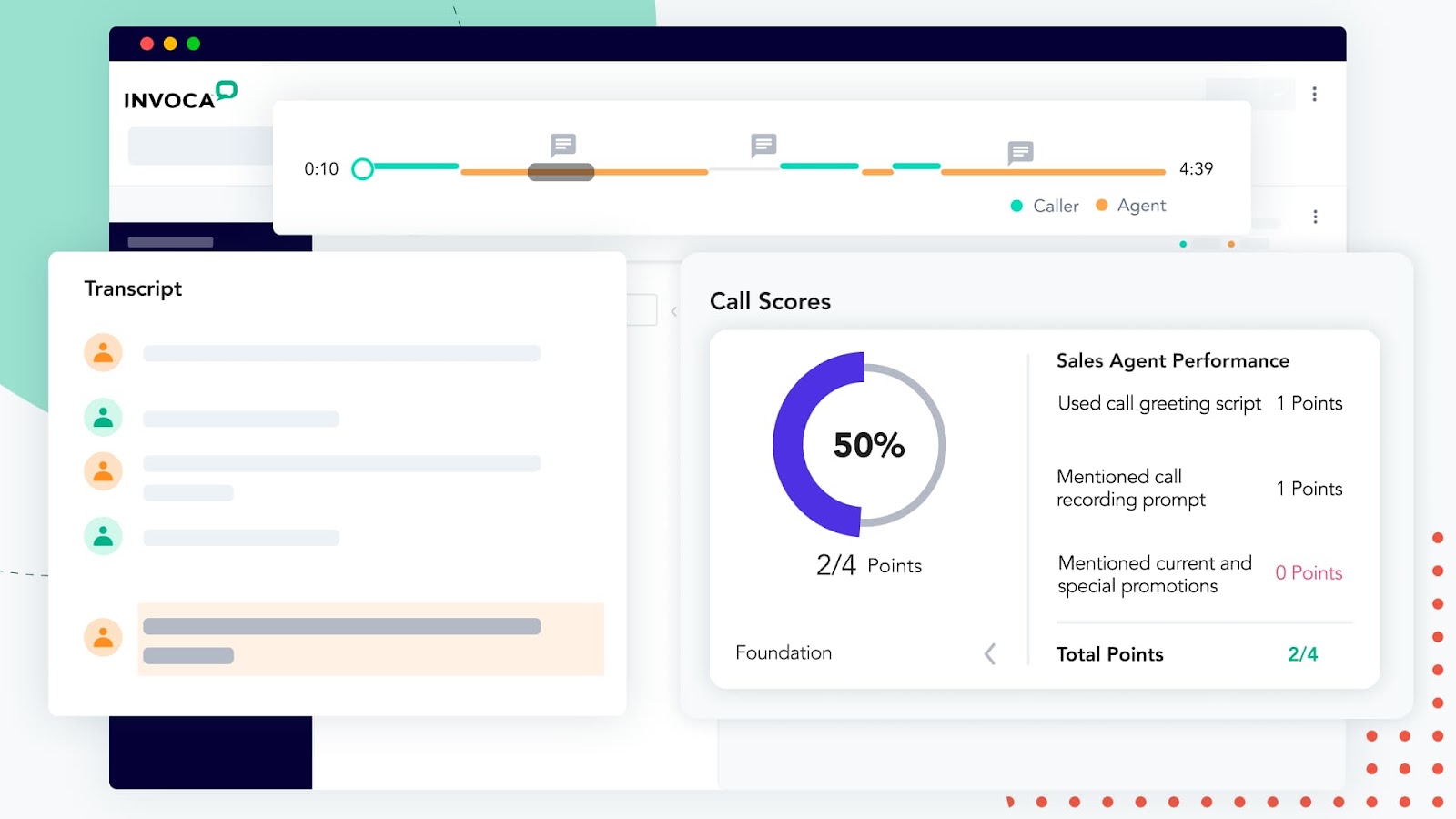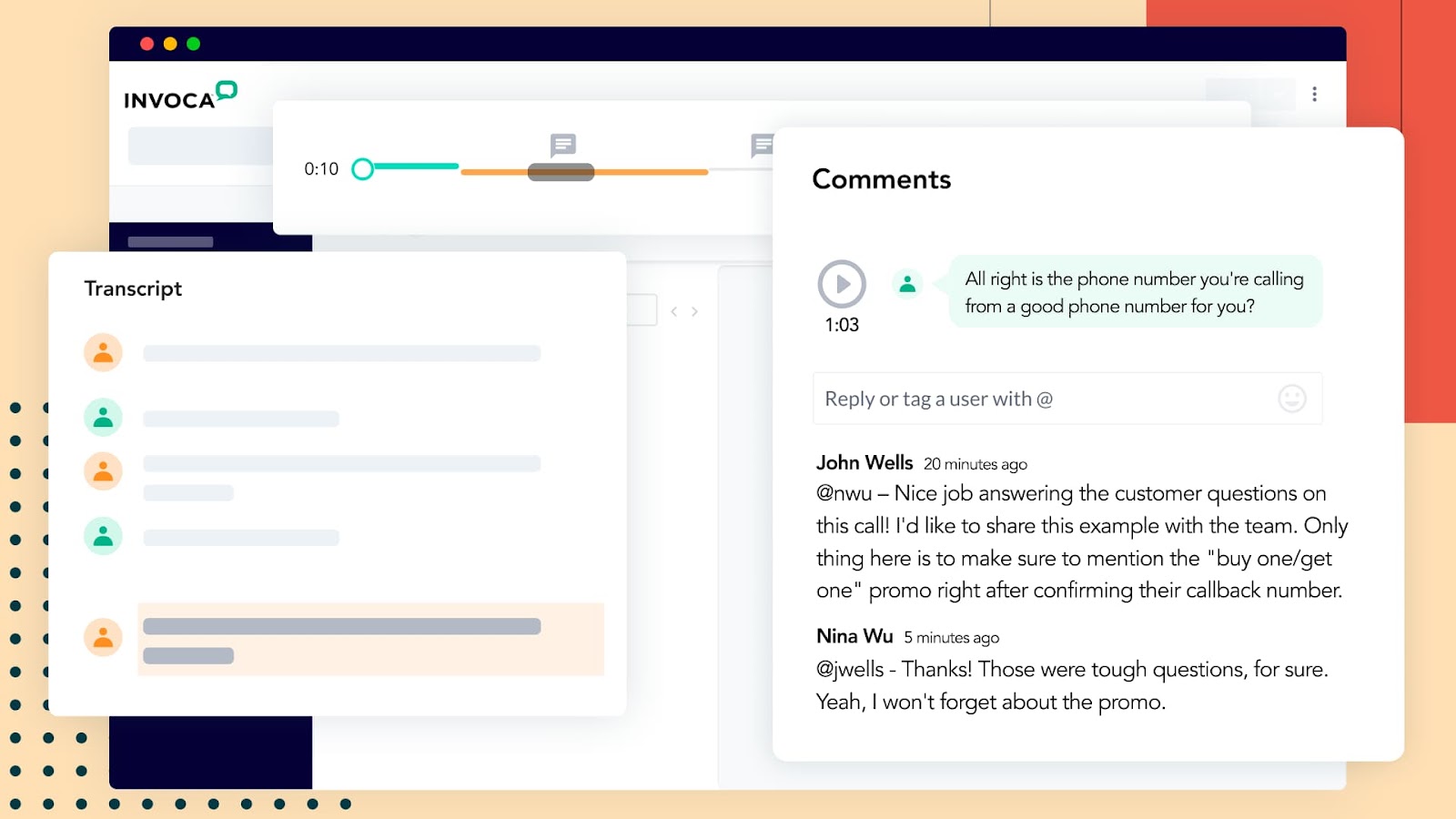- Request a demo
- United States
.png)
Millions of Americans started working remotely due to COVID-19 and, post-pandemic, they don’t want to leave the comfort of their homes — or their sweatpants. In fact, in a recent survey, 65% of respondents said they wanted to be full-time remote employees post-pandemic, and 31% said they wanted a hybrid remote work environment. That’s 96% who desire some form of remote work!
Call centers have been no exception to this trend — many agents have shifted to full-time remote roles due to the pandemic. Some call center managers have embraced this shift, while others have been apprehensive. But the numbers don’t lie — your contact center agents want to work remotely for the long haul. Giving your employees the flexibility of remote work has many advantages — you can save on real estate costs, widen the net for recruiting, reduce turnover, and more.
Though it may seem like remote work can make it more difficult to monitor your agents’ progress and properly coach them, this is no longer the case. With technology solutions like conversation intelligence, you can get full visibility into every phone conversation and analyze them at scale. In fact, the data and insights you capture may even make your agents more productive.
Read on to learn how contact center managers are embracing the future of remote work and getting the right data to continually monitor and improve performance.
Perhaps the most obvious benefit of remote call centers is that you can significantly reduce your costs. You’ll no longer have to pay for real estate — or, if you choose a hybrid model, you can stagger schedules so that you can lease a smaller office space. You’ll also save costs on office furnishings, hardware, IT infrastructure, and other overheads. And, if you’re a growing business, you’ll be able to expand your contact center at any time without having to relocate to a larger space.
You can use these savings to reinvest in your employees through training programs or increased salaries, ensuring that you retain top talent.
Remote call centers can help you thrive in a tight labor market by increasing the applicant pool you can draw from. Rather than relying on local talent, you can handpick the best talent from around the world. You can recruit call center agents from the various regions you serve so that they can speak the local dialect and connect with your audience on a deeper level. You can also recruit contact center agents in different time zones so you can serve your customers 24/7.
In addition, offering a remote working environment will attract talented applicants who may not want to work in an office due to responsibilities at home, such as childcare or eldercare.
Giving your employees the ability to work remotely will increase their job satisfaction — they’ll spend less time commuting and will have more time to manage their personal lives. If you keep your employees happy, they’ll be more eager to go above and beyond for your customers. It’s a win-win.
In today’s labor market, workers are changing jobs on a massive scale. According to a recent survey, 52% of US workers are thinking about starting a new job this year. This “reshuffle” has made it more challenging than ever to keep top talent. And call centers weren’t exactly known for high retention rates to begin with.
Turnover is one of the biggest costs you’ll face as a contact center manager. It’s expensive to constantly train new agents and teach them about your products or services and sales processes. Turnover also leaves your contact center understaffed, letting sales calls go unanswered and costing you revenue.
By giving employees the flexibility to work remotely, you can increase retention and reduce the costs associated with turnover and training.
Maintaining proper call center staffing can be a constant challenge, especially for companies that have seasonal peaks in demand, such as lawn care or tax preparation. With remote agents, you have more scheduling flexibility and the ability to staff up as needed, making it easier to manage seasonal fluctuations.
The best employees aren’t just taking directions from their managers, they’re actively engaged in the work they’re doing and holding themselves accountable for their results. When you allow your call center employees to work remotely, you’re giving them more autonomy and the opportunity to truly take ownership of the work they’re doing.
But you can’t send your remote agents off to fend for themselves — you have to give them the right tools to track and measure their performance. Conversation intelligence solutions like Invoca for Sales empower contact center agents with data-driven insights about their performance.
With Invoca for Sales, you can set up your own custom criteria for a successful sales call — for example, the agent greets the caller properly, requests the caller’s information, asks for the sale, and closes. Invoca’s AI will then automatically score each call based on these criteria, no manual processes required. The agent will receive their scores in real time, allowing them to adjust their approach on the fly, without having to wait for the next meeting with their manager. This gives them more autonomy and helps them thrive in a remote environment.

Managers will also receive the agent scores, allowing them to track their team’s performance and provide additional coaching as needed (more on that next).
One of the main concerns companies have about the transition to remote call centers is that it will be more difficult to coach agents. But conversation intelligence solves this problem, helping you become the Steve Kerr of the contact center.
Conversation intelligence solutions give contact center managers complete visibility into every phone conversation. You can view agent scores for every inbound phone call and dig into the transcriptions and recordings to learn exactly what they said. Invoca offers in-platform coaching, so you can comment directly on call transcriptions. This allows you to use the transcriptions as coaching tools and give your agents real-time feedback without missing a beat. It’s more effective than in-person coaching ever was.

Remote call centers can continue to operate even during natural disasters or other disruptions that would close a traditional brick-and-mortar call center. This is because remote agents can log in and work from anywhere with an internet connection. As long as they have an internet connection, agents in other unaffected areas can continue to log in and keep the lines of communication open, even during emergencies.
Picture agents free from the constant buzz of office chatter and interruptions. Remote call centers provide a quieter, more focused environment, allowing agents to concentrate on delivering exceptional customer service. Studies even suggest remote workers experience higher productivity compared to their in-office counterparts. This translates to faster call resolution times and a more efficient use of your team's own valuable time.
Remote call centers significantly reduce the environmental impact of your operations. By eliminating the need for employee commutes, you contribute to a decrease in overall carbon footprint. Fewer cars on the road translates to less traffic congestion, air pollution, and greenhouse gas emissions. Additionally, remote setups typically require less energy consumption compared to traditional office buildings with their constant lighting, heating, and cooling needs. This shift towards a more sustainable business model not only benefits the environment, but can also resonate positively with environmentally conscious customers and potential employees.
While remote contact centers offer a wealth of benefits, it's important to acknowledge some potential hurdles. Here are a few challenges your remote contact center may face and how to navigate them:
The COVID-19 pandemic forced a global experiment in remote work, proving its viability across many industries. While some companies are eager to return to traditional office settings, the advantages of remote call centers are undeniable. By proactively addressing these challenges, you can create a work environment that fosters productivity, security, and agent satisfaction. This strong foundation will make your remote call center a valuable asset, giving your company a compelling reason to embrace the future of work.
Want to learn more about how Invoca can help you build a high-performing remote contact center? Check out these resources:
